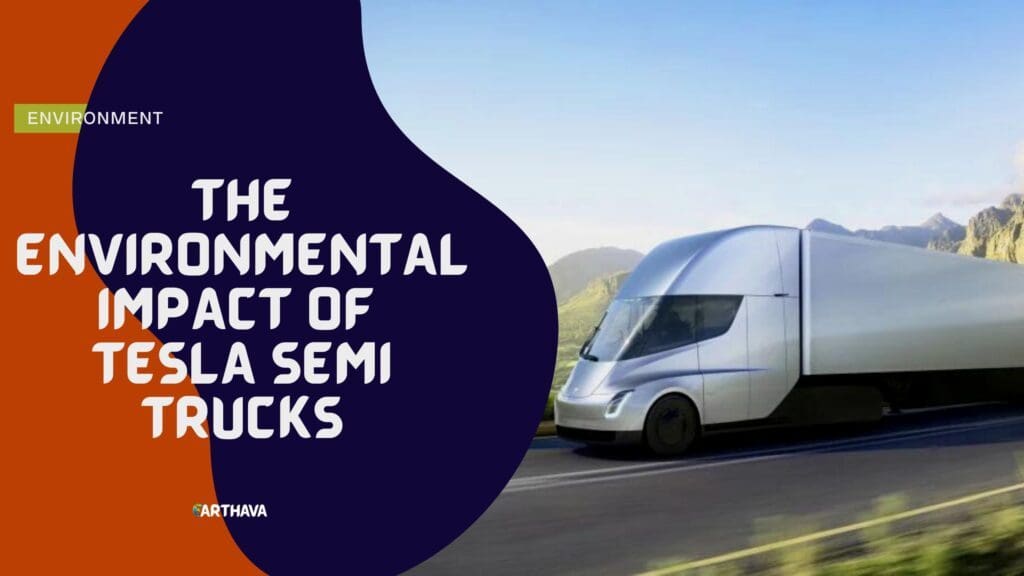Elon Musk, the CEO of Tesla, is no stranger to disrupting industries. Now he wants to do more of the same in the trucking industry. He’s unveiling a heavy-duty truck known simply as the “Semi.”

It has several notable capabilities, such as being able to maintain a 60 mph speed up a five-percent grade and going from zero to 60 mph in 20 seconds, even when loaded down with cargo.
Trucks have gotten progressively more advanced over the years, and having an impressive amount of power alone isn’t enough to set the Semi apart from competitors. However, analysts are particularly interested in the positive environmental impact the Tesla trucks could have.
An Electrically-Powered Option
The electric heavy-duty truck market is still emerging, but it could be Musk’s trucks that make faster progress happen. That’s because the Semi can go up to 500 miles on a single charge and use less than two kWh of electricity per mile.
The Semi’s official site claims electric energy costs are half that of diesel. In total, it says the resulting fuel savings could be at least $200,000 per year with a two-year payback period.
Companies are Taking Notice
Businesses with enough money available can’t even buy the Tesla Semi yet. Instead, they have to settle for a reservation process and a two-year waiting period. Even so, that’s not stopping people from getting excited about how this truck could change the entire sector.
In late December last year, UPS placed the largest known order for Tesla Semis and reserved 125 of them. Pepsi, Walmart, and Sysco are reportedly some of the other brands that are part of the pre-order list.
UPS plans to use the Semi primarily in the United States and has provided Tesla with data about its routes that should help the latter company determine how its model will perform compared to the rest of the UPS fleet.
There are numerous ways to reduce trucking costs, and it seems one of the ways UPS is trying to watch out for its bottom line is to invest in vehicles that run on alternative fuels. In 2016, 16 percent of the new trucks it purchased used either alternative fuels or advanced technologies.
Tesla Semi Trucks May Support Platooning
Some analysts believe it may be possible to link two or more Tesla trucks together in an arrangement known as “platooning.” It reduces drag and potentially cuts down on the need for drivers, especially with autonomous systems. In Europe, platooned trucks drove on roads in normal conditions as part of a challenge involving six brands.
Supporters say that platooned trucks are similar to train cars. In the European scenario, the trucks were equipped with Wi-Fi that allowed them to follow each other closer than what’s possible with humans behind the wheel.
Also, supporters say that in addition to the better efficiency of the trucks themselves, platooned vehicles could ease congestion on busy roads by using them in more effective methods.
Are Tesla Semi Trucks Practical?
Based on the highlights outlined above, it’s not hard to see why Tesla’s Semi is making waves in the trucking industry and beyond. If they perform as well as advertised, they’ll certainly change the industry for the better, not to mention encourage other companies to pour more resources into making electric trucks, too.
The real test of practicality — and pollution reduction — will come when companies receive their Semis and use them in real-world scenarios. News reports indicate Tesla has partnered with Anheuser-Busch and UPS to build on-site charging ports at the brands’ facilities. That’ll be somewhat helpful for ensuring the vehicles stay powered up during their routes.
However, it’ll be interesting to see if charging availability or any other challenges make Tesla Semi Trucks attractive in theory, but not quite ready for mainstream use.
A lot could change between now and when the vehicles arrive on the roads. Those innovations might substantially impact whether widespread adoption of these trucks occurs.
